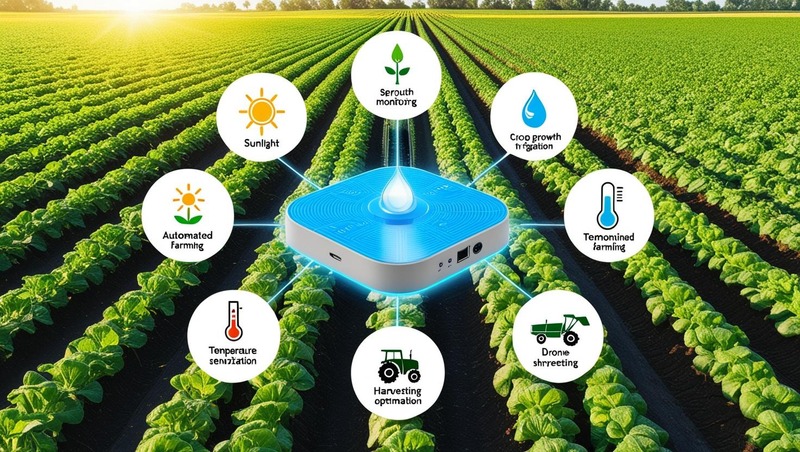The agricultural landscape is undergoing a technological revolution, with smart irrigation systems playing a central role in promoting sustainable and efficient farming practices. As water scarcity and climate variability challenge traditional agricultural methods, smart irrigation technologies are emerging as game-changers. These advanced systems not only help conserve water but also improve crop productivity and reduce operational costs. By leveraging sensors, data analytics, and automation, modern irrigation practices are becoming more precise, responsive, and environmentally friendly.
One of the most transformative technologies in smart irrigation is the use of soil moisture sensors. These sensors monitor the water content in the soil in real time and provide crucial data to determine when and how much irrigation is needed. This targeted approach prevents overwatering and under-watering, helping farmers maintain optimal soil conditions for crop growth. By responding to the actual needs of the plants rather than relying on preset schedules, soil moisture sensors significantly enhance irrigation efficiency.
Download PDF Brochure @ https://www.marketsandmarkets.com/pdfdownloadNew.asp?id=199758913

Weather-based controllers, also known as climate-based irrigation controllers, are another pivotal innovation in smart irrigation. These systems use local weather data—including temperature, humidity, wind speed, and solar radiation—to automatically adjust irrigation schedules. By factoring in real-time and forecasted weather conditions, these controllers ensure that watering is only done when necessary. This not only saves water but also protects crops from diseases associated with excess moisture.
Drip irrigation systems enhanced with automation are revolutionizing how water is delivered to plants. Unlike traditional sprinkler systems, automated drip irrigation delivers water directly to the plant roots, minimizing evaporation and runoff. These systems can be controlled remotely through mobile apps or integrated farm management platforms, allowing farmers to manage irrigation precisely and conveniently. The result is healthier crops, reduced water consumption, and lower labor costs.
Remote sensing technology is also reshaping modern irrigation strategies. Using satellite imagery and drones equipped with multispectral cameras, farmers can assess crop health, detect water stress, and map field variability. These insights allow for precise irrigation planning tailored to specific zones within a field. When combined with GPS and GIS tools, remote sensing facilitates site-specific water management, maximizing resource efficiency and yield.
Artificial Intelligence (AI) and machine learning are pushing smart irrigation to new heights. These technologies analyze vast datasets from sensors, weather stations, and satellite images to predict irrigation needs and optimize water distribution. AI-powered platforms can learn from historical patterns and adapt to changing conditions, enabling predictive irrigation and proactive decision-making. This not only boosts productivity but also supports long-term sustainability.
The integration of Internet of Things (IoT) is the backbone of many smart irrigation technologies. IoT-enabled systems create a connected network of sensors, controllers, and data platforms, allowing seamless communication and automation across the farm. These systems provide farmers with real-time alerts, performance analytics, and actionable recommendations, empowering them to make informed decisions on irrigation management.
In conclusion, smart irrigation technologies are revolutionizing agriculture by bringing precision, efficiency, and sustainability to water management. As global challenges such as water scarcity and climate change intensify, the adoption of these advanced technologies will become essential. With continued innovation and support from government and industry stakeholders, smart irrigation is set to redefine the future of farming, ensuring food security while conserving vital natural resources.